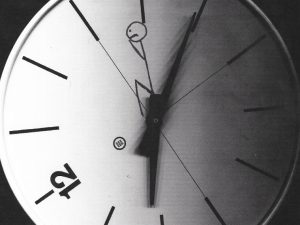In a world of work schedules, TV schedules, phone reminders, personalized alarms and all the clocks harassing you every time you look at a wall, it's easy to forget how accustomed we are to time. We barely know what it is, but it means so much. Every now and then, it's nice to take the time to pick up a book or a movie and think about it awhile.
Why Time Flies starts as an investigation into how we determine standard time and then proceeds into a meditation on how we perceive time and what time means to humanity and all living organisms. It's a combination of scientific study and personal observation, with plenty of information to chew on.
It's also fun to use fiction to explore what time means, what changes and what doesn't. Cloud Atlas tells a story spanning a huge swath of history, with an intertwining narrative that makes you wonder if different periods of time can really intersect. The movie adaptation takes it a step further by telling all the stories at once, making the same actors play multiple characters in different time periods.
And movies love playing with time. If you're looking for a fun romp, there's always Back to the Future or Looper. If you're a romantic sap, you can watch The Lake House or Somewhere in Time. Christopher Nolan constantly messes with perception and time in movies like Memento, Interstellar and, arguably, Inception. But for my money, if you really want to make your head hurt when it comes to time and consequences, there's nothing quite like Primer, which takes the implications of time travel to their nosebleed-inducing limits.
So as you listen to that clock ticking away in the background, remember that you're not the only one wondering what it is that gets us from today to tomorrow to whenever.



Add a comment to: Time Has Come Today